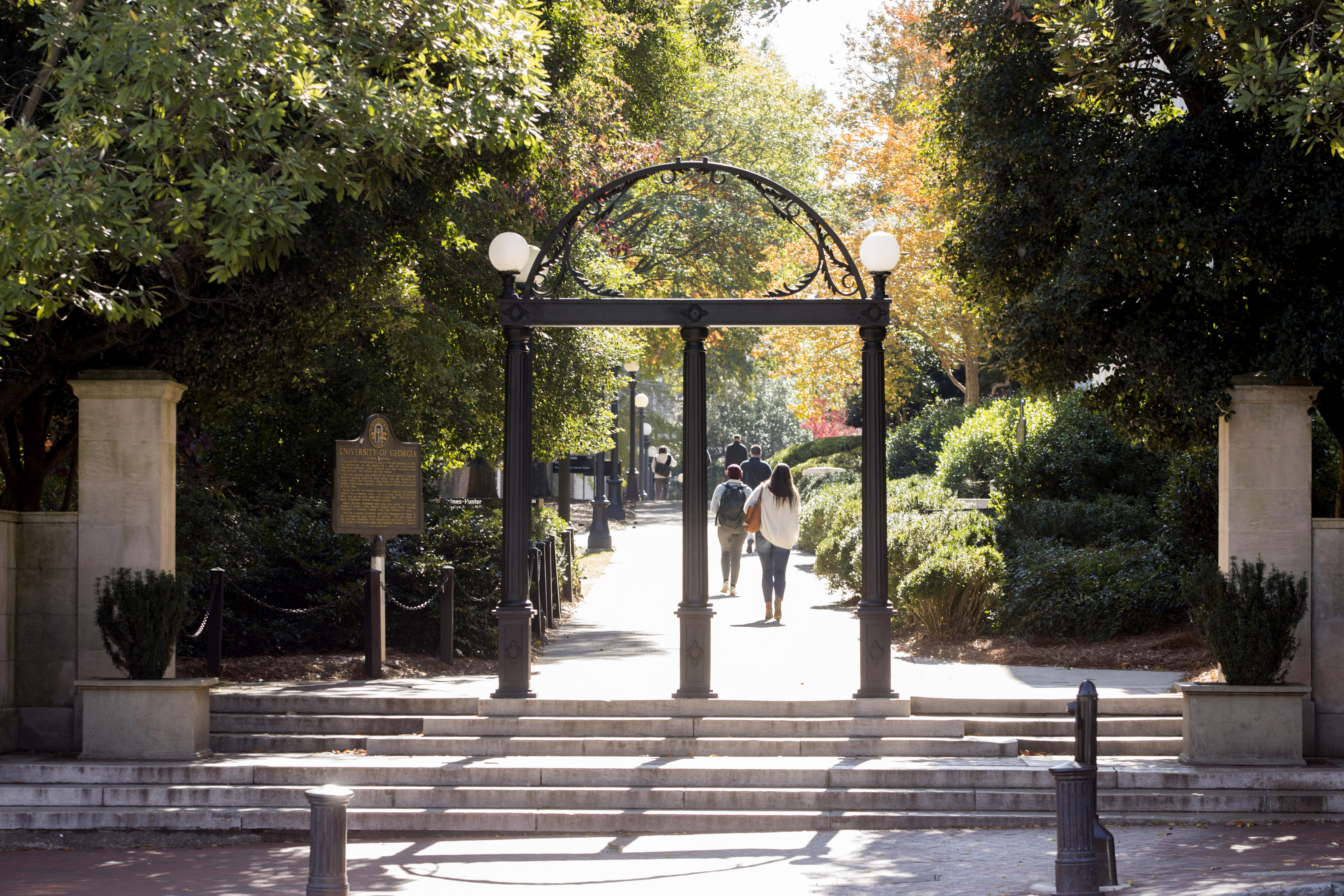The Franklin College Writing Intensive Program expanded writing-intensive classes during fall semester with visits by writing professionals, University of Georgia alumni and members of the Athens-area and university
communities.
As part of the program’s Public Writing Initiative, guest speakers volunteered their time to talk to undergraduates across disciplines about the importance of communication skills after graduation. Visitors discussed writing in a variety of careers—from data journalist to museum curator—and contexts—from graduate school to a prison-writing program. In WIP’s efforts to extend writing instruction beyond the First-Year Writing Program and across the Franklin College curriculum, its Public Writing Initiative offers an additional step forward. Now in its fourth year, the initiative continues to reinforce for students the career-amplifying power of writing well.
Faculty members as well as students see the benefits of learning from visiting writers.
Cecilia Herles, a WIP faculty member in women’s studies, described the presentation by Samantha Pinson Wrisley, a Ph.D. student at Emory University, as motivating, accessible and thought provoking.
“My students and I had the opportunity to learn from Sam and to engage with her strategies for writing that covered many issues including developing one’s own authorial voice, expository voice, critical voice and polemical voice,” Herles said.
“The guest speakers are a great way to expose students to diverse careers in their field and the importance of writing,” said Andrea Sweigart, associate professor of genetics, whose evolutionary biology lab class welcomed Anna Lau, communications science specialist at Genomic Health.
Guest speakers themselves highlighted how the PWI underscores for students the importance of writing and communication in various contexts. George Khalil, mathematical statistician at the U.S. Centers for Disease Control and Prevention and part-time professor of health policy and management in the UGA College of Public Health, praised the initiative and joined Jennifer Royal’s Higher Mathematics course to share his background and experience and discuss process, types of writing projects and the importance of clear communication.
The PWI fosters an awareness for writing as a skill that has real-world applicability and a practice that students will continue to engage in long after graduation. Students in participating classes in art history, sociology, mathematics, women’s studies, genetics, statistics, philosophy and linguistics had the opportunity to learn about writing in workplace settings from program coordinators, data journalists and web developers.
Jennifer Peebles, newsroom data specialist at the Atlanta Journal-Constitution, gave students in Nicole Lazar and Lynne Seymour’s senior statistics capstone course an exclusive look at writing in a STEM context.
“I talked a bit about my job at the Journal-Constitution, what I do, my academic and professional background, how I’m the most unlikely person to ever be doing math for a living and how I write,” Peebles said. “I tried to stress to them that anything you’re writing of any length, you need some kind of plan for how you’re going to structure it. You can’t just plop down at the keyboard and expect to be able to wing it.”
Peebles stressed the priority that writing demands in the real world.
“I see every day that there are so many smart people out there who know so much, but struggle to communicate their knowledge to others,” she said. “That can be problematic for them professionally, but it’s also bad for society in general, I think.”
Other PWI speakers for fall 2019 included UGA alumna Sofia Alexandrovna Ivanova, who is coordinator of UGA’s Russian Flagship Program; Jeffrey Richmond-Moll, American art curator at the Georgia Museum of Art; Lauren Blais, web developer specialist in Franklin College’s Office of Information Technology; and Caroline Young, a lecturer in the English department and site director at Common Good
Atlanta.


